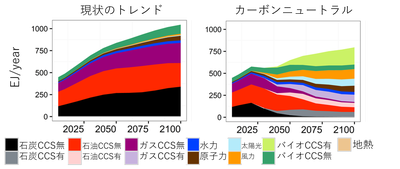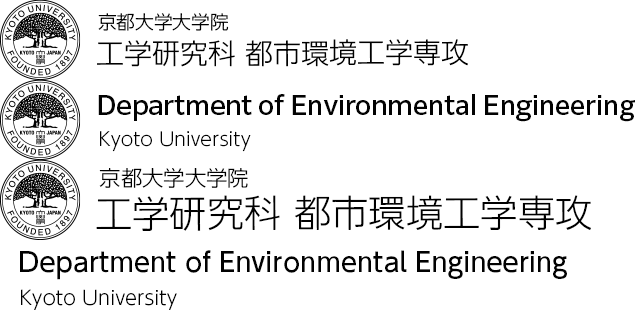Atmospheric and Thermal Environmental Engineering
We develop a state-of-the-art integrated assessment model that can simulate, economy, energy, food, agriculture, land-use, emissions, air pollution and climate. Our mode is interdiciplinary products which would have wide range of application field for global environmental problems.
Academic Staff
Shinichiro FUJIMORI
Professor (Graduate School of Engineering)
Research Topics
- Climate change mitigation
- Climate change impact and adaptation
- Integrated assessment modeling
Contacts
Room 363 (C1-3), C-cluster, Katsura Campus
TEL: +81-75-383-3367
FAX: +81-75-383-3371
E-mail: sfujimori![]() athehost.env.kyoto-u.ac.jp
athehost.env.kyoto-u.ac.jp
Shotaro MORI
Assistant Professor (Graduate School of Engineering) 
Research Topics
- Scenario analysis of climate change mitigation
- Energy and power system modeling
- Climate policy assessment
Contacts
Room 363 (C1-3), C-cluster, Katsura Campus
TEL: +81-75-383-3369
FAX: +81-75-383-3371
E-mail: mori.shotaro.2n@kyoto-u.ac.jp
Shiya ZHAO
Program-Specific Assistant Professor (Graduate School of Engineering) 
Research Topics
- Climate policy assessment
- Integrated assessment modeling of sustainable development
- Scenario analysis of a just transition towards decarbonization
Contacts
Room 363 (C1-3), C-cluster, Katsura Campus
TEL: +81-75-383-3369
FAX: +81-75-383-3371
E-mail: zhao.shiya.3a@kyoto-u.ac.jp
Research Topics
Global and national energy economic model development
This theme develop energy-economic model and explore the future greenhouse gas emissions and energy. The main focus is in energy system and interaction with macroeconomy. The primarily research question is how to mitigate the climate change and what would be the obstacles and what would be the political solutions.

Fig1. An example of global future simulation
SDGs implications of climate change mitigation
Sustainable development goals (SDGs) have multi-dimensional target spaces. Climate change impacts and mitigation could potentially interact with SDGs. We demonstrate how non-climate SDG targets are related with climate change impacts and mitigation, which bring the picture of synergy and trade-off. Poverty, hunger and health would be the primary focus of our modeling but there would be beyond that.

Fig2. Integrated assessment models and SDG relationship
Air pollution simulation and cobenefit of climate change mitigation
Air pollution is expected to mitigated by CO2 abatement. However, it is not clear how much the health benefit and the implications of the latest political situation. We use atmospheric chemistry model to explore the global air pollution condition with emissions information from the integrated assessment model.

Fig3. PM2.5 simulation results
